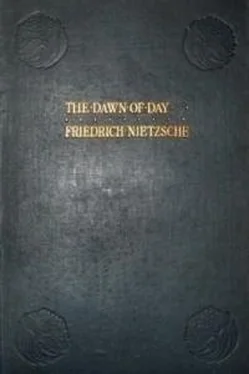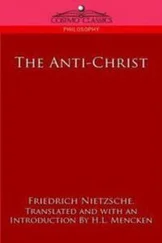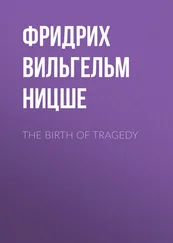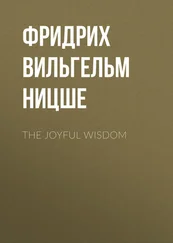35.
FEELINGS AND THEIR DESCENT FROM JUDGMENTS.—“Trust in your feelings!” But feelings comprise nothing final, original; feelings are based upon the judgments and valuations which are transmitted to us in the shape of feelings (inclinations, dislikes). The inspiration which springs from a feeling is the grandchild of a judgment—often an erroneous judgment!—and certainly not one’s own judgment! Trusting in our feelings simply means obeying our grandfather and grandmother more than the gods within ourselves : our reason and experience.
36.
A FOOLISH PIETY, WITH ARRIÈRE–PENSÉES .—What! the inventors of ancient civilisations, the first makers of tools and tape lines, the first builders of vehicles, ships, and houses, the first observers of the laws of the heavens and the multiplication tables—is it contended that they were entirely different from the inventors and observers of our own time, and superior to them? And that the first slow steps forward were of a value which has not been equalled by the discoveries we have made with all our travels and circumnavigations of the earth? It is the voice of prejudice that speaks thus, and argues in this way to depreciate the importance of the modern mind. And yet it is plain to be seen that, in former times, hazard was the greatest of all discoverers and observers and the benevolent prompter of these ingenious ancients, and that, in the case of the most insignificant invention now made, a greater intellect, discipline, and scientific imagination are required than formerly existed throughout long ages.
37.
WRONG CONCLUSIONS FROM USEFULNESS.—When we have demonstrated the highest utility of a thing, we have nevertheless made no progress towards an explanation of its origin; in other words, we can never explain, by mere utility, the necessity of existence. But precisely the contrary opinion has been maintained up to the present time, even in the domain of the most exact science. In astronomy, for example, have we not heard it stated that the (supposed) usefulness of the system of satellites—(replacing the light which is diminished in intensity by the greater distance of the sun, in order that the inhabitants of the various celestial bodies should not want for light)—was the final object of this system and explained its origin? Which may remind us of the conclusions of Christopher Columbus The earth has been created for man, ergo, if there are countries, they must be inhabited. “Is it probable that the sun would throw his rays on nothing, and that the nocturnal vigils of the stars should be wasted upon untravelled seas and unpeopled countries?”
38.
IMPULSES TRANSFORMED BY MORAL JUDGMENTS.—The same impulse, under the impression of the blame cast upon it by custom, develops into the painful feeling of cowardice, or else the pleasurable feeling of humility , in case a morality, like that of Christianity, has taken it to its heart and called it good . In other words, this instinct will fall under the influence of either a good conscience or a bad one! In itself, like every instinct , it does not possess either this or indeed any other moral character and name, or even a definite accompanying feeling of pleasure or displeasure; it does not acquire all these qualities as its second nature until it comes into contact with impulses which have already been baptized as good and evil, or has been recognised as the attribute of beings already weighed and valued by the people from a moral point of view. Thus the ancient conception of envy differed entirely from ours. Hesiod reckons it among the qualities of the good , benevolent Eris, and it was not considered as offensive to attribute some kind of envy even to the gods. This is easy to understand in a state of things inspired mainly by emulation, but emulation was looked upon as good, and valued accordingly.
The Greeks were likewise different from us in the value they set upon hope: they conceived it as blind and deceitful. Hesiod in one of his poems has made a strong reference to it—a reference so strong, indeed, that no modern commentator has quite understood it; for it runs contrary to the modern mind, which has learnt from Christianity to look upon hope as a virtue. Among the Greeks, on the other hand, the portal leading to a knowledge of the future seemed only partly closed, and, in innumerable instances, it was impressed upon them as a religious obligation to inquire into the future, in those cases where we remain satisfied with hope. It thus came about that the Greeks, thanks to their oracles and seers, held hope in small esteem, and even lowered it to the level of an evil and a danger.
The Jews, again, took a different view of anger from that held by us, and sanctified it: hence they have placed the sombre majesty of the wrathful man at an elevation so high that a European cannot conceive it. They moulded their wrathful and holy Jehovah after the images of their wrathful and holy prophets. Compared with them, all the Europeans who have exhibited the greatest wrath are, so to speak, only second–hand creatures.
39.
THE PREJUDICE CONCERNING “PURE SPIRIT.”—Wherever the doctrine of pure spirituality has prevailed, its excesses have resulted in the destruction of the tone of the nerves: it taught that the body should be despised, neglected, or tormented, and that, on account of his impulses, man himself should be tortured and regarded with contempt. It gave rise to gloomy, strained, and downcast souls—who, besides, thought they knew the reason of their misery and how it might possibly be relieved! “It must be in the body! For it still thrives too well!”—such was their conclusion, whilst the fact was that the body, through its agonies, protested time after time against this never–ending mockery. Finally, a universal and chronic hyper–nervousness seized upon those virtuous representatives of the pure spirit: they learned to recognise joy only in the shape of ecstasies and other preliminary symptoms of insanity—and their system reached its climax when it came to look upon ecstasy as the highest aim of life, and as the standard by which all earthly things must be condemned .
40.
MEDITATIONS UPON OBSERVANCES.—Numerous moral precepts, carelessly drawn from a single event, quickly became incomprehensible; it was as difficult a matter to deduce their intentions with any degree of certainty as it was to recognise the punishment which was to follow the breaking of the rule. Doubts were even held regarding the order of the ceremonies; but, while people guessed at random about such matters, the object of their investigations increased in importance, it was precisely the greatest absurdity of an observance that developed into a holy of holies. Let us not think too little of the energy wasted by man in this regard throughout thousands of years, and least of all of the effects of such meditations upon observances ! Here we find ourselves on the wide training–ground of the intellect—not only do religions develop and continue to increase within its boundaries: but here also is the venerable, though dreadful, primeval world of science; here grow up the poet, the thinker, the physician, the lawgiver. The dread of the unintelligible, which, in an ambiguous fashion, demanded ceremonies from us, gradually assumed the charm of the intricate, and where man could not unravel he learnt to create.
41.
TO DETERMINE THE VALUE OF THE VITA CONTEMPLATIVA .—Let us not forget, as men leading a contemplative life, what kind of evil and misfortunes have overtaken the men of the vita activa as the result of contemplation—in short, what sort of contra–account the vita activa has to offer us , if we exhibit too much boastfulness before it with respect to our good deeds. It would show us, in the first place, those so–called religious natures, who predominate among the lovers of contemplation and consequently represent their commonest type. They have at all times acted in such a manner as to render life difficult to practical men, and tried to make them disgusted with it, if possible: to darken the sky, to obliterate the sun, to cast suspicion upon joy, to depreciate hope, to paralyse the active hand—all this they knew how to do, just as, for miserable times and feelings, they had their consolations, alms, blessings, and benedictions. In the second place, it can show us the artists, a species of men leading the vita contemplativa , rarer than the religious element, but still often to be met with. As beings, these people are usually intolerable, capricious, jealous, violent, quarrelsome: this, however, must be deduced from the joyous and exalting effects of their works.
Читать дальше











